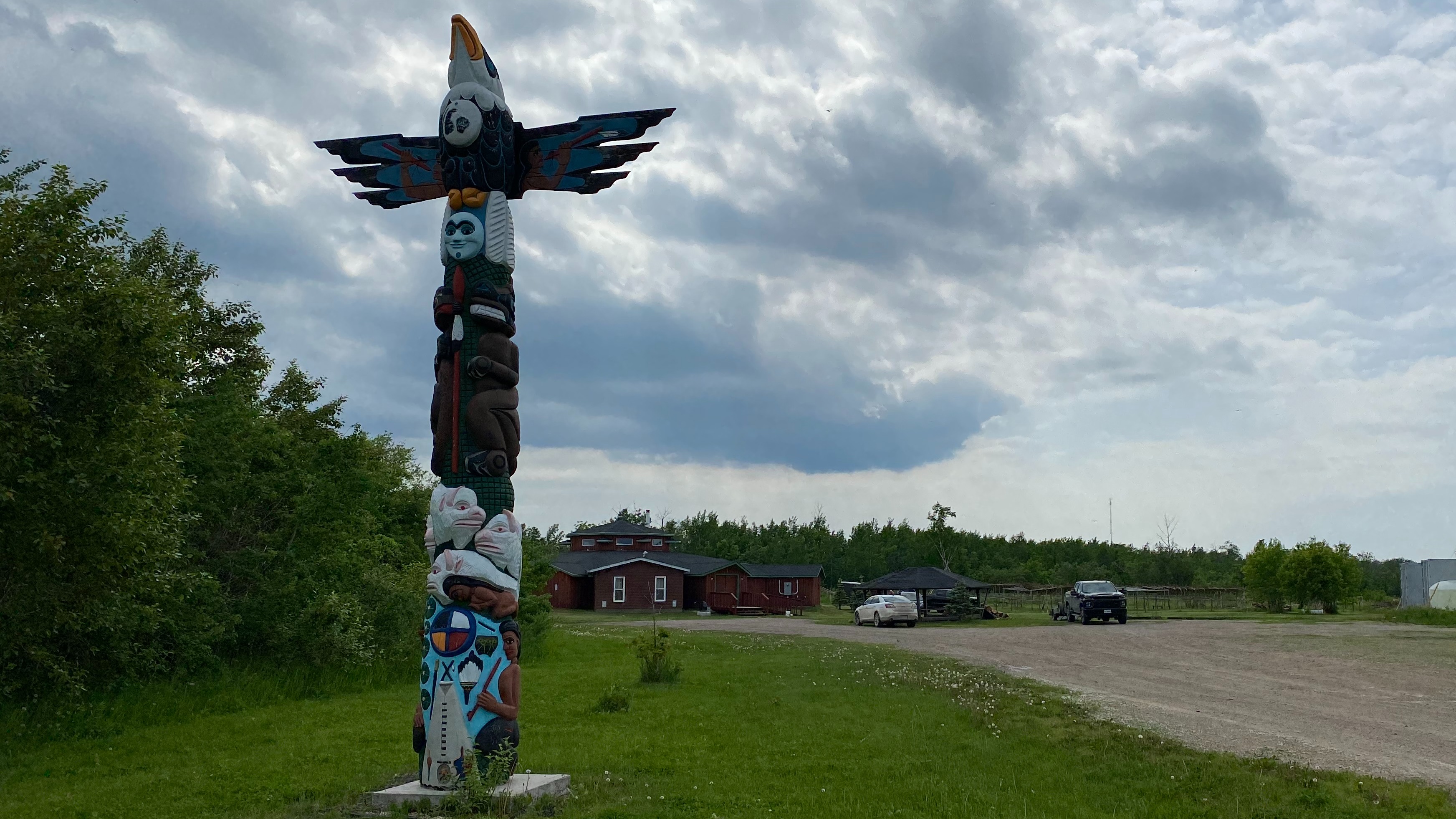
An Artemis 2 astronaut went on a vision quest to help prepare for his upcoming trip around the moon.
Jeremy Hansen recently participated in the four-day Indigenous rite of passage as part of Artemis 2 mission training, the Canadian Space Agency astronaut tweeted.
"I would like to express my gratitude to Anishinaabe Elder David Courchene III 'Sabe' for the gracious invitation," Hansen said of the ceremony, which took place at Turtle Lodge in Manitoba on the lands of the Sagkeeng First Nation (also known as Fort Alexander).
Hansen and his three Artemis 2 crewmates, who are all NASA astronauts, are performing 18 months of training for the round-the-moon mission, which is set to launch no earlier than November 2024. Training topics include the mission's main phases, facility with the spacecraft and other hardware and communicating with Mission Control at a distance.
Related: Artemis 2 crew begins 1st moon mission training in 50 years
Turtle Lodge is an international center for Indigenous education based upon the goal of Mino-Pi-Mati-Si-Win, translated as "a good and peaceful way of life" on the organization's website. The lodge follows universal values (more specifically, seven sacred laws and the eight paths of life) from the Anishinabe peoples of the region.
The vision quest, often undertaken as a traditional rite of passage for young people shifting to adulthood, asks participants to fast for four days in the wilderness under the supervision of Indigenous elders.
During the quest, "we will take ourselves away from any influence from our fellow human beings; we will truly go out alone [to] be alone with the spirit, be alone with the land," David Courchene, an elder and Nii Gaani Aki Innini (Leading Earth Man) of the Anishinabe, said in a 2010 Turtle Lodge video released on YouTube.
Spending time on the land, with which the Anishinabe are intrinsically linked, "creates an opening" that allows participants to find peace and to define a vision for their lives, he added.
Hansen has been working with Indigenous communities for many years, including making several visits to the far north of Canada. He also has put in four years of work with the Ulnooweg Education Centre, part of which involved opening a new educational space in 2018 at the L'nu Sipuk Kina'Muokuom (LSK) School in Sipekne'katik First Nation in Nova Scotia, according to a CBC News report at the time.
Speaking with the CBC back then, Hansen said he has witnessed or attended pow-wows, sweats and pipe ceremonies. As a result, he learned the role of Indigenous knowledge in addressing "things like climate change, [or] taking care of our planet," which are also key priorities of the Canadian Space Agency.
More generally, Canada has been seeking to integrate Indigenous knowledge more closely in government, academia and other spheres of the community following the release of a 2015 report by the independently run Truth and Reconciliation Commission of Canada.
The six-volume report covered matters such as abuse and death of children at residential schools in Canada, the loss of traditional lands and the systematic dismantling of Indigenous, Inuit, First Nations and Métis knowledge across centuries of European colonization.







